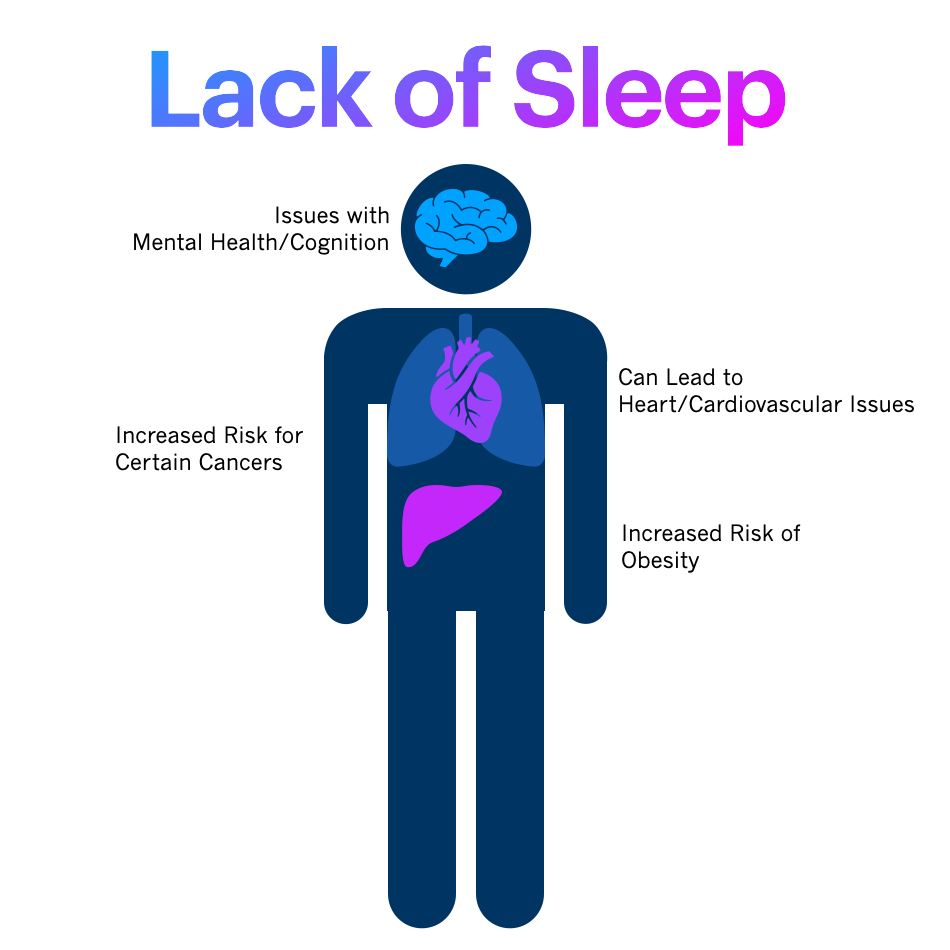Sleep plays a vital role in maintaining both physical and mental health. When the body does not get enough rest, it not only affects energy levels and cognitive functioning but also significantly impacts emotional well-being. A consistent lack of sleep can lead to various mental health issues, disrupt emotional regulation, and exacerbate existing psychological conditions. Here’s a closer look at how insufficient sleep affects mental health.

1. Increased Risk of Anxiety and Depression
Sleep deprivation is closely linked to mental health disorders, particularly anxiety and depression. Studies have shown that individuals who consistently get inadequate sleep are more likely to develop symptoms of anxiety and depression. Lack of sleep affects the brain’s ability to regulate emotions, leading to heightened sensitivity to stress. Over time, this stress can evolve into chronic anxiety or depressive episodes. In fact, insomnia is often one of the key symptoms of depression, creating a vicious cycle where poor sleep worsens the condition and the condition further disrupts sleep.
2. Impaired Emotional Regulation
When people are sleep-deprived, their emotional responses tend to be more extreme. A lack of sleep can reduce the brain’s ability to regulate emotions, making individuals more prone to irritability, mood swings, and heightened emotional reactivity. This happens because sleep deprivation affects the amygdala, the part of the brain responsible for processing emotions. Without proper rest, this region becomes overactive, leading to stronger negative emotions like anger, frustration, and sadness.
3. Cognitive Decline and Poor Decision-Making
Mental health is not just about emotions but also about cognitive functioning. Sleep is crucial for cognitive processes like memory consolidation, attention, and decision-making. When someone is sleep-deprived, their ability to focus and think clearly is impaired. This cognitive decline can lead to frustration, stress, and a sense of helplessness, contributing to mental health problems. Furthermore, the impaired judgment caused by poor sleep can lead to bad decisions in personal and professional life, adding to feelings of anxiety and stress.
4. Increased Risk of Stress and Burnout
Stress is a natural part of life, but sleep deprivation can make even minor challenges feel overwhelming. Without enough rest, the brain becomes less resilient to stressors, making it harder to cope with daily pressures. This can lead to burnout, especially for those in high-stress jobs or situations. Chronic stress, in turn, contributes to mental health problems like anxiety disorders, depression, and even physical health issues such as high blood pressure.
5. Weakened Coping Mechanisms
Sleep is essential for emotional resilience. It allows the brain to process emotions and experiences, helping people cope with life’s challenges. When sleep is lacking, the ability to cope with negative emotions weakens. This means that stressful events or personal conflicts may feel more overwhelming, leading to negative mental health outcomes. Individuals may find it harder to bounce back from setbacks, contributing to feelings of anxiety, frustration, and hopelessness.
6. Increased Risk of Psychotic Symptoms
In severe cases of sleep deprivation, individuals may experience hallucinations, paranoia, and disorganized thinking, which are symptoms typically associated with psychotic disorders like schizophrenia. Prolonged periods of sleep deprivation can trigger these symptoms, even in individuals without a history of mental illness. For those who already have a mental health condition, poor sleep can exacerbate symptoms, making treatment more challenging.
7. Exacerbation of Pre-existing Mental Health Conditions
For people already dealing with mental health disorders like bipolar disorder, schizophrenia, or PTSD (Post-Traumatic Stress Disorder), poor sleep can worsen their symptoms. For instance, in bipolar disorder, sleep deprivation can trigger manic or depressive episodes. Similarly, individuals with PTSD may experience an increase in flashbacks or intrusive thoughts when their sleep is disrupted.
Conclusion
Lack of sleep is more than just a physical issue; it has profound effects on mental health. From increasing the risk of anxiety and depression to impairing emotional regulation and cognitive functioning, sleep deprivation can significantly harm one’s emotional well-being. Prioritizing sleep is essential for maintaining a healthy mind, improving emotional resilience, and preventing the development or worsening of mental health disorders.
